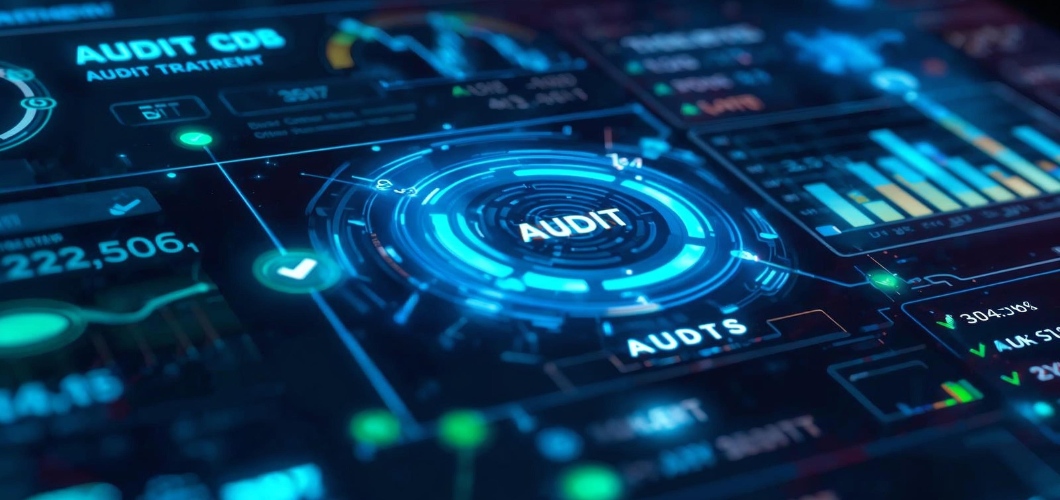Security audits are no longer once-a-year checkboxes. In today’s rapidly evolving threat landscape, audits have become a continuous, strategic requirement—especially as cyber threats grow more advanced and regulations become more demanding. Organisations must be audit-ready not just annually but at all times.
Leading cyber security providers are redefining what “audit preparedness” means. They emphasise proactive visibility, stronger cloud risk management, adoption of intelligent cyber security technologies, and organisation-wide security culture. When combined, these capabilities create a mature security environment that can pass audits with confidence while reducing the risk of non-compliance.
This blog explores what next-generation audit preparedness looks like and how businesses can strengthen their posture using modern cyber security solutions, cloud security services, and strategic content distribution.
Why Next-Gen Audit Preparedness Matters More Than Ever
Audit expectations have shifted dramatically in recent years. Businesses now face:
New Regulatory Pressures
From GDPR and SOC 2 to ISO 27001 and industry-specific mandates, compliance requirements are tightening globally. Auditors expect real-time evidence, not static reports.
Complex Multi-Cloud Environments
As companies adopt more SaaS platforms and cloud infrastructure, cloud cyber security becomes a major audit priority. Misconfigurations, identity gaps, and unmonitored workloads often pose the greatest risks.
Faster Evolving Cyber Threats
Ransomware, phishing, insider threats, AI-generated attacks, and supply chain compromises expose organisations to severe risks that may violate compliance requirements if left unaddressed.
Stakeholder Expectations
Customers, partners, and investors increasingly demand transparency in security practices and audit outcomes.
To keep pace, leading cyber security providers recommend shifting from reactive, annual audit preparation to a continuous audit-ready model.
What Leading Cyber Security Providers Recommend
1. Adopt Cloud Security Services for Continuous Visibility
One of the biggest challenges during audits is the lack of real-time visibility across systems—especially cloud environments. This is why leading cyber security providers strongly recommend adopting cloud security services that offer:
- Continuous monitoring of cloud resources
- Automated detection of misconfigurations
- Identity and access visibility
- Compliance posture management
- Real-time security alerts
With these capabilities, organisations can provide auditors with evidence instantly instead of manually collecting logs and reports.
Cloud security services make next-gen audit preparedness automatic, reducing time, manual effort, and compliance risk.
2. Use Integrated Cyber Security Technologies to Build a Unified Audit Trail
Auditors expect clear, traceable records. Modern cyber security technologies help establish a unified audit trail across networks, endpoints, cloud assets, and user identities.
Leading providers recommend tools such as:
- SIEM (Security Information and Event Management)
- SSPM (SaaS Security Posture Management)
- CSPM (Cloud Security Posture Management)
- IAM (Identity and Access Management)
- MDR/XDR solutions
These solutions create a single source of truth for:
- Activity logs
- Incident response timelines
- Access permissions
- Threat detections
- Policy enforcement
This unified visibility simplifies even the most complex security audits.
3. Automate Compliance Checks and Reporting
Manual compliance reporting is slow, error-prone, and resource-heavy. Next-gen audit preparedness demands automation.
Cyber security providers recommend compliance automation tools that:
- Continuously check systems against frameworks like SOC 2, ISO 27001, HIPAA, PCI DSS, and NIST
- Provide automated remediation suggestions
- Generate audit-ready reports instantly
- Track compliance gaps in real time
This automation ensures the organisation remains audit-ready 365 days a year—not just when audit season arrives.
4. Strengthen Phishing and Threat Awareness Programs
Human error remains a leading cause of audit failures—often resulting from phishing attacks, weak passwords, and poor security behaviours.
Cyber security providers stress the importance of:
- Regular phishing simulations
- Security training programs
- Role-based access controls
- Clear incident reporting workflows
- Zero-trust behavioural policies
These initiatives strengthen the “people layer” of security—an essential part of audit preparedness.
5. Build a Culture of Cloud-First Security
Modern audits place significant emphasis on cloud cyber security. Organisations should adopt a cloud-first security culture that prioritises:
- Secure cloud architecture
- Access least privilege
- Automated cloud backups
- Encryption and key management
- Cloud-specific incident response plans
By demonstrating a mature cloud cyber security posture, businesses significantly improve their audit outcomes.
6. Keep Your Organisation Educated Through Strategic Content Syndication
One of the most underrated aspects of audit preparedness is continuous education. Employees, IT teams, and decision-makers must stay informed about:
- New cyber threats
- Evolving compliance standards
- Industry best practices
- Cloud security trends
- Regulatory updates
This is where TechVersion’s content syndication plays a powerful role.
How Content Syndication Strengthens Next-Gen Audit Preparedness
TechVersion helps cyber security providers and enterprise teams distribute high-value cybersecurity content—including compliance updates, technology insights, and cloud security best practices—to the right audiences at scale.
Here’s how that supports audit readiness:
Continuous Education for Teams
Syndicated expert content keeps stakeholders informed about:
- New compliance rules
- Latest cloud cyber security practices
- Industry-level threats
- Key risks auditors focus on
This knowledge ensures teams stay prepared year-round.
Reduces Knowledge Gaps That Lead to Audit Failures
Misunderstanding compliance requirements is a top cause of audit issues. TechVersion delivers consistent, trusted educational content that helps reduce gaps across the organisation.
Supports Decision-Makers with Relevant Insights
Leaders gain access to targeted cybersecurity insights that align with their roles, making it easier to invest in the right cyber security technologies and cloud security services.
Strengthens Vendor Evaluation and Audit Strategy
Syndicated content highlights best practices from leading cyber security providers, helping organisations benchmark their security posture and prepare effectively.
TechVersion doesn’t just distribute content—it elevates the organisation’s awareness, maturity, and readiness, which directly impacts audit success.
Final Thoughts
Next-gen audit preparedness is no longer optional—it’s a foundational pillar of modern cybersecurity strategy. With the right technology, processes, and education ecosystem in place, businesses can confidently navigate modern audits—and strengthen their security posture for the future.



